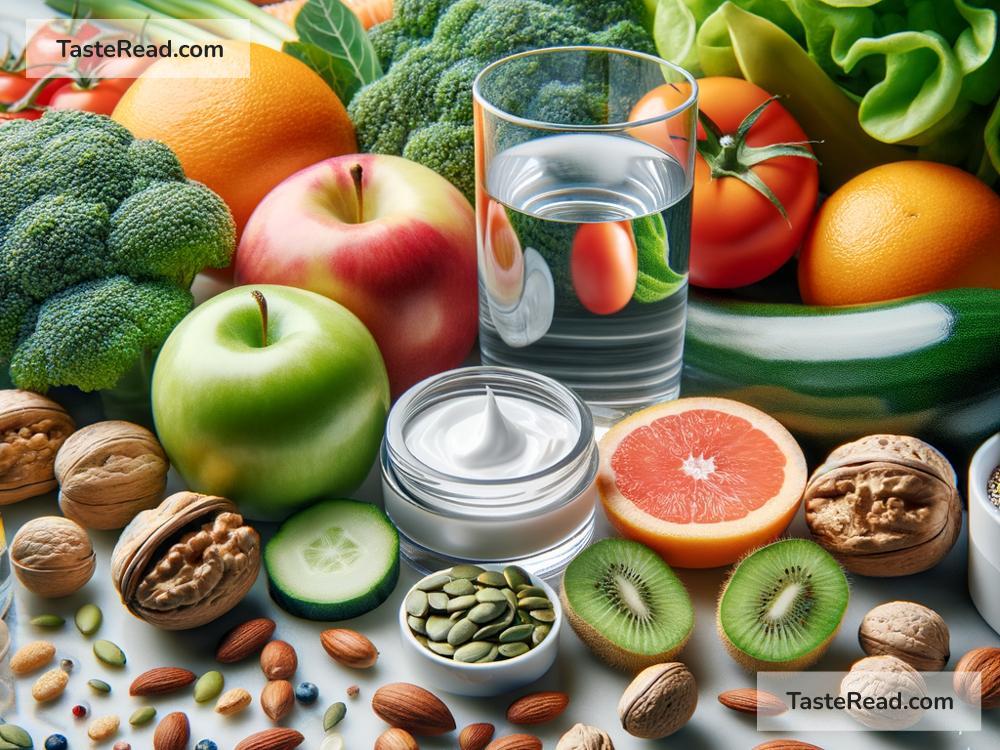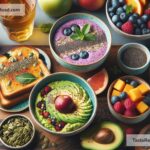The Connection Between Nutrition and Skin Health
When it comes to glowing, healthy skin, there’s more to it than using the right creams and serums. What you eat plays a significant role in how your skin looks and feels. Nutrition and skin health are closely linked, and making the right food choices can keep your skin happy and beautiful. Let’s take a closer look at how the food you eat impacts your skin, what nutrients are helpful, and how to adjust your diet for the best results.
Why Nutrition Matters for Your Skin
Your skin is the largest organ in your body, and, just like any other organ, it relies on proper nutrition to function and stay healthy. If you’re not fueling your body with the right foods, your skin might become dry, dull, or prone to conditions like acne or wrinkles. On the other hand, a well-balanced diet can allow your skin to repair itself, stay hydrated, and fight off damage caused by the sun, pollution, and aging.
Think of your diet as the foundation of your skincare routine. Skincare products work on the outside, but good nutrition works from the inside, helping your skin stay strong and vibrant.
Key Nutrients for Healthy Skin
Certain nutrients are especially good for improving your skin’s health and appearance. Here’s what to look for in your diet:
1. Vitamin C
Vitamin C is a powerful antioxidant that helps your skin produce collagen, a protein that keeps your skin firm and stretchy. It also protects your skin from damage caused by the sun and environmental toxins. Foods rich in vitamin C include oranges, strawberries, bell peppers, and broccoli.
2. Vitamin E
Similar to vitamin C, vitamin E is an antioxidant that protects your skin cells from damage and keeps your skin moisturized. You can find vitamin E in nuts, seeds, spinach, and avocados.
3. Omega-3 Fatty Acids
Omega-3 fatty acids are healthy fats that reduce inflammation in the body and promote soft, hydrated skin. They’re especially helpful for people with conditions like eczema or dry skin. Salmon, walnuts, chia seeds, and flaxseeds are great sources of omega-3s.
4. Vitamin A
Vitamin A is essential for repairing skin tissues and keeping your skin smooth and free from blemishes. It’s also helpful for reducing the appearance of fine lines and wrinkles. Sweet potatoes, carrots, and spinach are packed with vitamin A.
5. Zinc
Zinc is a mineral that supports the healing of skin wounds and helps control oil production, which can reduce acne. You can find zinc in shellfish, lean meats, nuts, and legumes like chickpeas.
6. Water
It may not be a nutrient, but water is one of the most important things for healthy skin. When you’re hydrated, your skin looks plumper and stays elastic, making it less prone to dryness and wrinkles. Drinking plenty of water each day is a simple and effective step toward better skin.
Foods That Can Harm Your Skin
Just as some foods are great for your skin, others can have the opposite effect. Eating too much sugar or processed foods can lead to inflammation that contributes to issues like acne and redness. Beware of foods high in sugar, like candy, sodas, and pastries, as they can damage collagen and make your skin age faster.
Another food group to keep an eye on is fried or greasy foods. These can increase oil production in your skin and clog your pores, leading to breakouts.
Finally, alcohol in excess can dehydrate your skin and cause puffiness, redness, and fine lines. If you drink, balance it out by hydrating and replenishing your body.
Building a Skin-Friendly Diet
Now that you know which nutrients help your skin and which foods to avoid, here are some tips for building a diet that supports your skin health:
1. Eat More Fruits and Vegetables
Fruits and veggies are filled with vitamins, minerals, and antioxidants, and they should be a big part of your plate. Think colorful — the brighter the color of your produce, the more nutrients it likely contains.
2. Choose Healthy Fats
Incorporate sources of healthy fats into your meals, such as avocados, olive oil, salmon, and nuts. They help keep your skin moisturized and glowing.
3. Stay Hydrated
Along with drinking water, eat hydrating foods like cucumbers, watermelon, and celery. They can help your skin stay fresh and dewy.
4. Avoid Sugar Overload
Limit your intake of sugary snacks and drinks. Opt for natural sweetness from fruits or small servings of dark chocolate.
5. Balance Your Meals
Make sure you’re eating meals that combine protein, carbohydrates, and healthy fats. This balance will give your body everything it needs to maintain healthy skin.
Final Thoughts
The old saying “You are what you eat” rings true, especially when it comes to your skin. By focusing on a diet rich in vitamins, minerals, antioxidants, and healthy fats, you can improve your skin’s health from the inside out. At the same time, try to cut back on sugar, processed foods, and alcohol, as they can leave your skin looking tired and damaged.
Remember, changes to your diet won’t transform your skin overnight. But by being consistent with healthy eating, drinking water, and nourishing your skin with the right nutrients, you’ll set the stage for long-term beauty and wellbeing. Treat your body kindly, and your skin will thank you!


